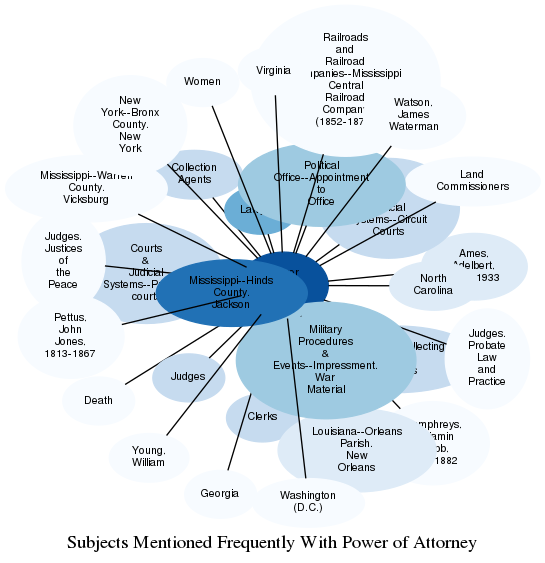Description
A power of attorney is "the legal right to act for someone else in their financial or business matters, or the document that gives you this right" (Cambridge Dictionary). Power of attorney can be granted for numerous and varied reasons, generally to those whose relatives or legal dependents are deemed incapable of managing their own affairs due to disability, age, or other factors. Power of attorney privileges in the nineteenth-century United States most often had negative effects on women. American law placed men at the head of their households, and at marriage a woman's political and legal identity was subsumed into her husband's in a process known as "coverture." While not technically a power of attorney agreement, this arrangement provided the same practical powers and granted men full control of their wives' property, finances, and often, in the case of divorce, custody of children. Powers of attorney in the nineteenth-century U. S. therefore highlight the level of legally protected patriarchal authority exercised by men North and South (Encyclopedia of the United States in the Nineteenth Century, Vol.1, 533-537).
See also: https://dictionary.cambridge.org/us/dictionary/english/power-of-attorney
Related Subjects

The graph displays the other subjects mentioned on the same pages as the subject "Power of Attorney". If the same subject occurs on a page with "Power of Attorney" more than once, it appears closer to "Power of Attorney" on the graph, and is colored in a darker shade. The closer a subject is to the center, the more "related" the subjects are.